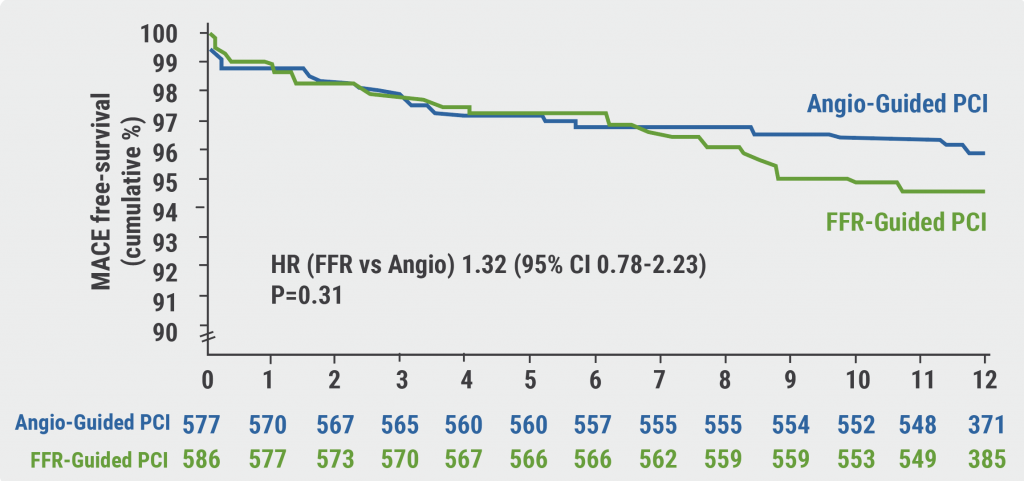Some patients with COVID-19 exhibit a dramatic immune response, resulting in increased thrombotic events and a hyperinflammatory state. The intensity of the immune response can lead to the development of acute respiratory distress syndrome (ARDS) and ultimately death. Statins are known to have pleiotropic effects that include both anti-inflammatory and anti-thrombotic effects. Previous studies have shown a beneficial effect of statins on hyper-inflammatory phenotypes of ARDS (but not hypo-inflammatory phenotypes) [2,3]. Furthermore, antecedent statin use has been associated with decreased mortality in COVID-19 hospitalised patients. Dr Behnood Bikdeli (Brigham and Women’s Hospital, MA, USA) and colleagues aimed to investigate whether statins could benefit patients who were severely affected with COVID-19.
The INSPIRATION trial (NCT04486508) randomised 605 patients who were critically ill with COVID-19 to receive either 20 mg of atorvastatin daily (n=303) or a placebo (n=302) over 30 days. Of the original 303 patients in the atorvastatin arm, 290 were included in the prespecified primary analysis; of the original 302 patients in the placebo arm, 297 were included in the prespecified primary analysis.
The primary endpoint was a composite of 30-day venous or arterial thrombosis, treatment with ECMO, or all-cause mortality. In the atorvastatin arm, 95/290 (32.7%) reached the primary endpoint compared with 108/297 (36.3%) in the placebo arm (HR 0.84; 95% CI 0.63–1.11; P=0.22).
The main safety outcomes were a rise in liver enzymes of >3 times normal and clinically diagnosed myopathy. In the atorvastatin group, only 5 (1.7%) patients experienced a rise in liver enzymes compared with 6 (2.0%) in the placebo group. No patients were diagnosed with myopathy.
The investigators concluded that the administration of 20 mg atorvastatin daily to ICU-admitted patients with COVID-19 was no more beneficial than a placebo. However, they suggested that a smaller treatment effect could not be excluded. They identified the need for further research that explores the potential role of statins if administered sooner; that is, before the hyperinflammatory pathway is activated.
- Bikdeli B. Atorvastatin vs Placebo in Critically-ill Patients with Covid-19: The Inspiration-S Double Blind Randomised Controlled Trial. Abstract 409-16, ACC 2021 Scientific Session, 15–17 May.
- Heijnen NFL, et al. J Thorac Dis 2019;11(Suppl 3):S296-S299.
- Calfee CS, et al. Lancet Respir Med 2018;6(9):691-698.
Copyright ©2021 Medicom Medical Publishers
Posted on
Previous Article
« Health equity and the role of the cardiologist: 7 priorities to consider Next Article
Novel use of ivabradine in reversible cardiomyopathy »
« Health equity and the role of the cardiologist: 7 priorities to consider Next Article
Novel use of ivabradine in reversible cardiomyopathy »
Table of Contents: ACC 2021
Featured articles
Electrophysiology
Favourable outcomes with transcatheter atrial appendage occlusion
Etripamil nasal spray significantly improves PSVT-related symptoms
Ablation-based rhythm control as effective as rate control in AF and HF
Finerenone reduces the risk of AF onset in patients with CKD and diabetes
Heart Failure and Cardiomyopathy
PARADISE-MI: Sacubitril/valsartan not superior to ramipril in reducing HF events
Older adults with heart failure benefit from rehabilitation programme
Quality improvement intervention fails to improve care for patients with heart failure
Sacubitril/valsartan does not reduce NT-proBNP versus valsartan alone in HFrEF
Novel use of ivabradine in reversible cardiomyopathy
Mavacamten significantly improves QoL of patients with hypertrophic cardiomyopathy
Interventional and Structural Cardiology
Men and women benefit equally from early aspirin withdrawal following PCI
Similar outcomes with fractional flow reserve and angiography-guided revascularisation
TALOS-AMI: Exploring outcomes after switching to clopidogrel versus ticagrelor at 1 month from MI
Clopidogrel monotherapy associated with better net outcomes relative to aspirin monotherapy 6-18 months after PCI
Ischaemic Heart Disease
No difference in ischaemic risk or bleeding with low vs high-dose aspirin for secondary prevention: Lessons and questions from the ADAPTABLE trial
Rivaroxaban reduces total ischaemic events after peripheral artery revascularisation
Moderate hypothermia not superior to mild hypothermia following out-of-hospital cardiac arrest
Better outcomes with invasive strategy if anatomic complete revascularisation is possible
Prevention and Health Promotion
STRENGTH trial fails to demonstrate cardioprotective effect of omega-3 fatty acids
Evinacumab lowers triglyceride levels in severe hypertriglyceridaemia
Health equity and the role of the cardiologist: 7 priorities to consider
COVID-19
Dapagliflozin fails to show a significant protective effect in COVID-19
Therapeutic anticoagulation not superior to prophylactic anticoagulation in COVID-19
Atorvastatin does not reduce mortality in COVID-19
Valvular Heart Disease
Apixaban outcomes similar to current standard of care following TAVR
Preliminary results encouraging for EVOQUE tricuspid valve replacement
© 2024 Medicom Medical Publishers. All rights reserved. Terms and Conditions | Privacy Policy
HEAD OFFICE
Laarderhoogtweg 25
1101 EB Amsterdam
The Netherlands
T: +31 85 4012 560
E: publishers@medicom-publishers.com


